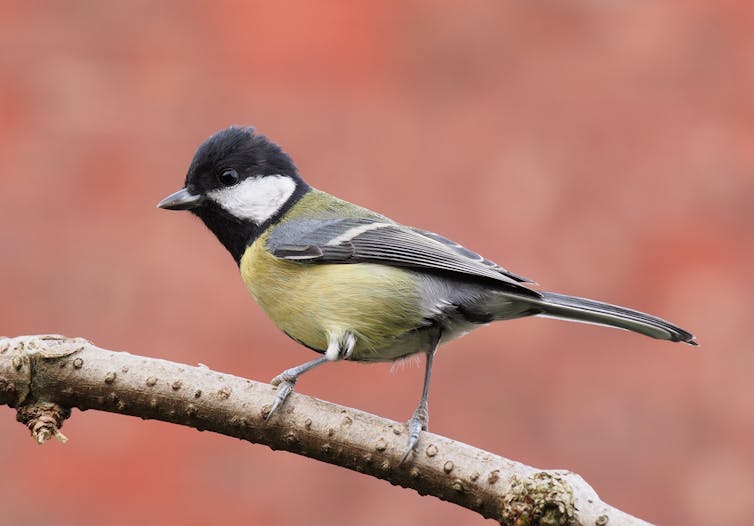How Will Animals Need To Adapt To Climate Change
The blackcurrant harvest on my allocation is highly dependent on the conditions. In 2018 the Great britain had a hot, dry out summer and the currants were sweet and plentiful. So far 2019 has been cold and wet, and the currants are few and tart. Just like my blackcurrants, the animals and plants of the earth answer to their environment – and peculiarly the changing climate. However, what scientists have not really understood to this point is whether the responses that species are showing volition help them to survive in a changing globe.
In a new written report, published in Nature Communications, the ecologist Viktoriia Radchuk brought together a large team of collaborators (myself included) to pool what we know near two central areas of biology.

First, we were interested in how animals are responding to climatic change, with a focus on changes in shape and size ("morphology") and changes in the timing of life events (when birds lay their eggs, when dragonflies emerge from ponds and then on – known as "phenology").
Second, nosotros were interested in how those changes affect their success (or evolutionary "fitness"): does earlier egg laying lead to greater survival of chicks, for example. By linking the ii datasets, we could infer whether the responses of species to climate change would help them to keep ahead of the modify.
While many different groups of animals and plants accept been studied in this way, birds are ane of the few groups that take been followed in the same locations over multiple years. For example, the Academy of Oxford has run the Wytham Woods Tit Project since 1947, studying changes in the population of great tits and blue tits using 1,000 nest boxes and a complex array of microchipped birds and feeding stations. That study has been able to track the timing of reproduction, the number of eggs laid, and the weight and size and the birds during the flow of recent climate change – all vital to the aims of our project.

Radchuk compiled a vast dataset covering iv,835 studies on 1,413 species, of which 71 contained all the information needed: a alter in climate, a alter in either the size/shape of the animal or the timing of a biological event, and a clear link between the size/shape or timing and the "fitness" of the animal (usually how many offspring they produced). Those 71 studies were almost entirely on birds, so that became the focus of the work.
The data showed that higher temperatures were shifting everything earlier in the year – birds were arriving before at breeding sites, start to breed before, and the immature were developing earlier. Importantly, these before events tended to help the birds to breed more successfully. However, in a clever piece of mathematical modelling, we besides show that the pace at which birds are tracking climatic change is not fast enough to keep them condom in the long term.
The results suggest that at least some species of bird may be able to conform to changing climates without having to move for the time being – an of import finding given that fifty-fifty if nosotros set bated climate change, humans are already destroying or fragmenting many bird habitats. We as well show that at that place is no increase in the degree of adaptation to changing climates during the studies, so the responses of birds (while helping for now) are express in what they tin can attain.
The central novelty in this work lies in bringing together a vast quantity of data that has been recorded for a large number of species sometimes over several decades. This treasure trove of data reveals simply how remarkable the natural world is to be able to rail a irresolute surround. At the same fourth dimension, the fact that even that amazing flexibility is not sufficient to keep pace with ongoing climate modify is notwithstanding another of import piece of the argument for tackling the human contribution to climate change.

Click here to subscribe to our climate activity newsletter. Climate change is inevitable. Our response to information technology isn't.
Source: https://theconversation.com/animals-will-struggle-to-adapt-fast-enough-to-cope-with-climate-change-study-finds-120857
Posted by: tharpsandint.blogspot.com

0 Response to "How Will Animals Need To Adapt To Climate Change"
Post a Comment